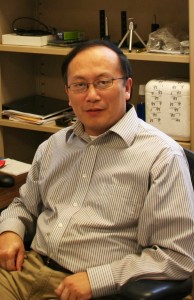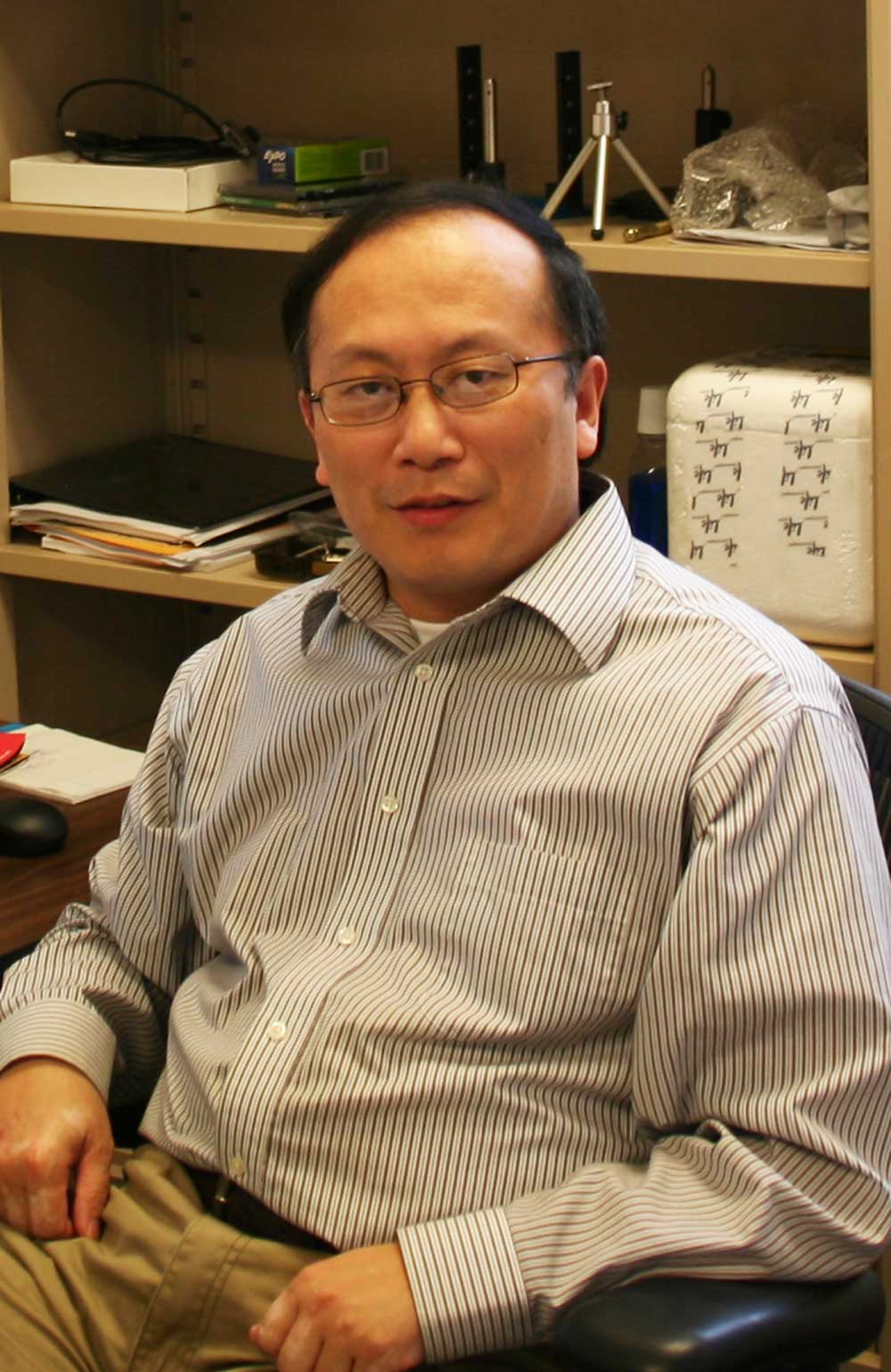
New electrical and computer engineering associate professor investigates nanotechnologies
Long Que always thought he wanted to be a physicist. But after receiving his bachelor’s in physics from Peking University, his dreams changed. He began researching at the Institute of Optics and Electronics, Chinese Academy of Sciences, a top engineering research institution in China. That’s when he started thinking more about a career in engineering, “I found it’s a very interesting field. I can work my ideas into making products.”
After making this revelation, Que attended the University of Wisconsin at Madison to get his Ph.D. in electrical engineering. He’s now focused on converging research into real products that benefit society and consumers.
One of his most recent accomplishments is the development of a MEMS device that can harvest multiple renewable energy sources on a single chip. Eventually, Que believes it could replace batteries for operating some biomedical devices. For example, a pacemaker’s battery has to be replaced when the energy is used up. Que’s technology could eliminate the replacement surgery, because it harvests energy throughout a patient’s body and the environment.
He has also been looking at early detection of diseases including cancers, trying to screen and detect diseases using a nanostructured microchip. The microchip can detect disease biomarkers at an ultralow concentration and then attack and kill the disease with drugs. “We have developed this type of chip, which offers ultra-sensitivity and multiplexed detection capability. On the chip, we can also apply drugs and change the drug dose dynamically so that destroying the disease (for example, the cancer cells) is more efficient.”
Prior to coming back to academia, Que worked in industry including GE-Global Research Center. He says the freedom to explore new things made becoming a professor a more natural career for him.
Working with students is another reason Que says academia suits him, especially seeing their knowledge grow as they gain experience in the lab. Que said, “I feel good knowing that the next generation will contain good researchers and engineers.”
